Unveiling the Italian Landscape: A Comprehensive Guide to Outline Maps
Related Articles: Unveiling the Italian Landscape: A Comprehensive Guide to Outline Maps
Introduction
With enthusiasm, let’s navigate through the intriguing topic related to Unveiling the Italian Landscape: A Comprehensive Guide to Outline Maps. Let’s weave interesting information and offer fresh perspectives to the readers.
Table of Content
Unveiling the Italian Landscape: A Comprehensive Guide to Outline Maps

Outline maps, simplified representations of geographical areas, serve as invaluable tools for understanding and analyzing spatial relationships. In the context of Italy, these maps provide a unique lens through which to explore the country’s diverse physical features, historical evolution, and cultural tapestry. This article delves into the significance of outline maps of Italy, highlighting their utility across various fields and offering insights into their applications.
The Significance of Outline Maps in Studying Italy
Outline maps of Italy offer a distinct advantage over detailed maps by focusing on the essential geographical features, eliminating visual clutter and promoting clarity. This simplification enhances the understanding of:
- Physical Geography: The outline map readily reveals the Italian peninsula’s elongated shape, its mountainous backbone (the Apennines), and the surrounding seas (Adriatic, Tyrrhenian, Ionian). This basic structure provides a foundation for analyzing the country’s climate, vegetation, and natural resources.
- Political Boundaries: The outline map clearly displays the regions and provinces of Italy, enabling the study of administrative divisions, political dynamics, and regional differences.
- Historical Development: Historical events, such as the Roman Empire’s expansion, the rise of city-states, and the unification of Italy, can be effectively visualized on an outline map, illustrating the interplay between geography and historical processes.
- Cultural Landscape: The outline map facilitates the exploration of Italy’s diverse cultural expressions, including regional dialects, culinary traditions, and architectural styles, highlighting the unique character of each region.
Applications of Outline Maps in Different Fields
The utility of outline maps extends beyond academic study, finding practical applications in various fields:
- Education: Outline maps are indispensable tools for teaching geography, history, and culture. They provide a visual framework for students to understand the spatial context of different concepts and events.
- Tourism: Outline maps serve as valuable planning tools for travelers, enabling them to visualize the country’s major cities, attractions, and transportation networks.
- Urban Planning: Outline maps aid in the analysis of urban development patterns, identifying areas for growth, infrastructure development, and resource allocation.
- Disaster Management: Outline maps facilitate the assessment of potential disaster risks, including earthquakes, volcanic eruptions, and floods, allowing for effective preparedness and response strategies.
- Environmental Studies: Outline maps assist in understanding the distribution of natural resources, environmental challenges, and conservation efforts, contributing to sustainable development initiatives.
FAQs about Outline Maps of Italy
Q: What are the key features to look for in an outline map of Italy?
A: A comprehensive outline map of Italy should depict the following:
- Major Geographic Features: The Apennine Mountains, the Po Valley, the major rivers, and the surrounding seas.
- Political Divisions: Regions and provinces, highlighting their boundaries.
- Major Cities: Key urban centers and their locations.
- Transportation Networks: Major highways, railways, and airports.
- Important Historical Sites: Key archaeological sites, ancient cities, and landmarks.
Q: How can I use an outline map to plan a trip to Italy?
A: Utilize the outline map to:
- Identify potential destinations: Select regions and cities that align with your interests.
- Plan your itinerary: Connect locations based on distance and transportation options.
- Explore regional specialties: Discover local cuisines, cultural attractions, and historical sites.
Q: Are there different types of outline maps for Italy?
A: Yes, outline maps of Italy can vary in their level of detail and focus. Some common types include:
- Blank Outline Maps: These maps provide the basic outline of Italy without any additional information, allowing for customized annotations.
- Political Outline Maps: These maps emphasize political boundaries and administrative divisions.
- Physical Outline Maps: These maps focus on the country’s physical features, including mountains, rivers, and coastline.
- Thematic Outline Maps: These maps highlight specific themes, such as population density, economic activity, or environmental concerns.
Tips for Using Outline Maps of Italy Effectively
- Choose the appropriate map: Select a map that aligns with your specific needs and interests.
- Annotate the map: Add relevant information, such as city names, landmarks, or travel routes.
- Combine with other resources: Integrate the outline map with other sources, such as travel guides, historical texts, or online databases.
- Use the map as a starting point: Explore further by researching specific locations, attractions, and activities.
Conclusion
Outline maps of Italy offer a valuable tool for understanding the country’s diverse geography, history, and culture. Their simplicity allows for focused analysis and comprehension, promoting a deeper appreciation for the Italian landscape and its complexities. Whether used for educational purposes, travel planning, or research, outline maps provide a foundational framework for exploring the fascinating world of Italy. By utilizing these maps effectively, individuals can gain a clearer understanding of the country’s unique character and its place in the global context.
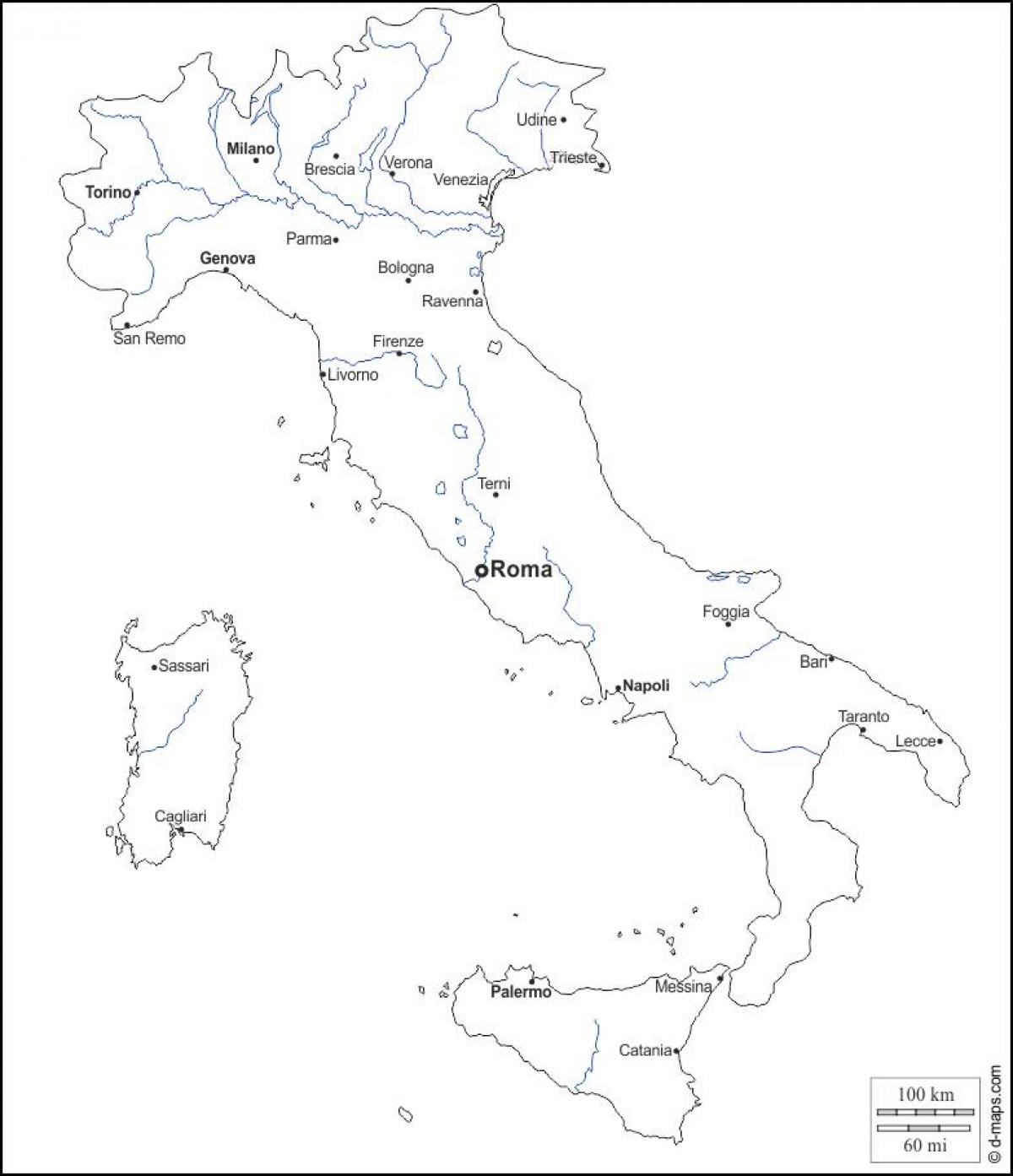
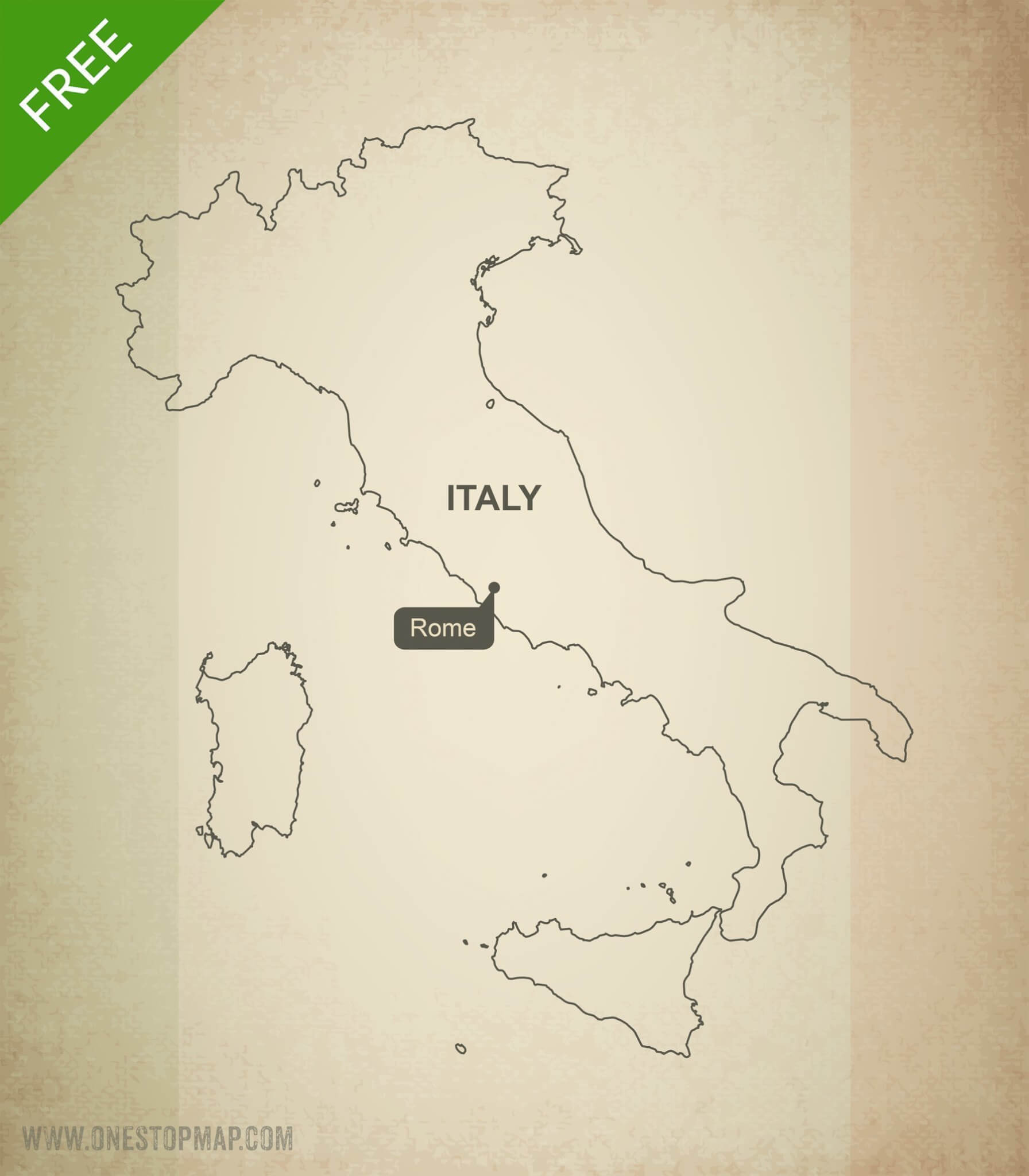
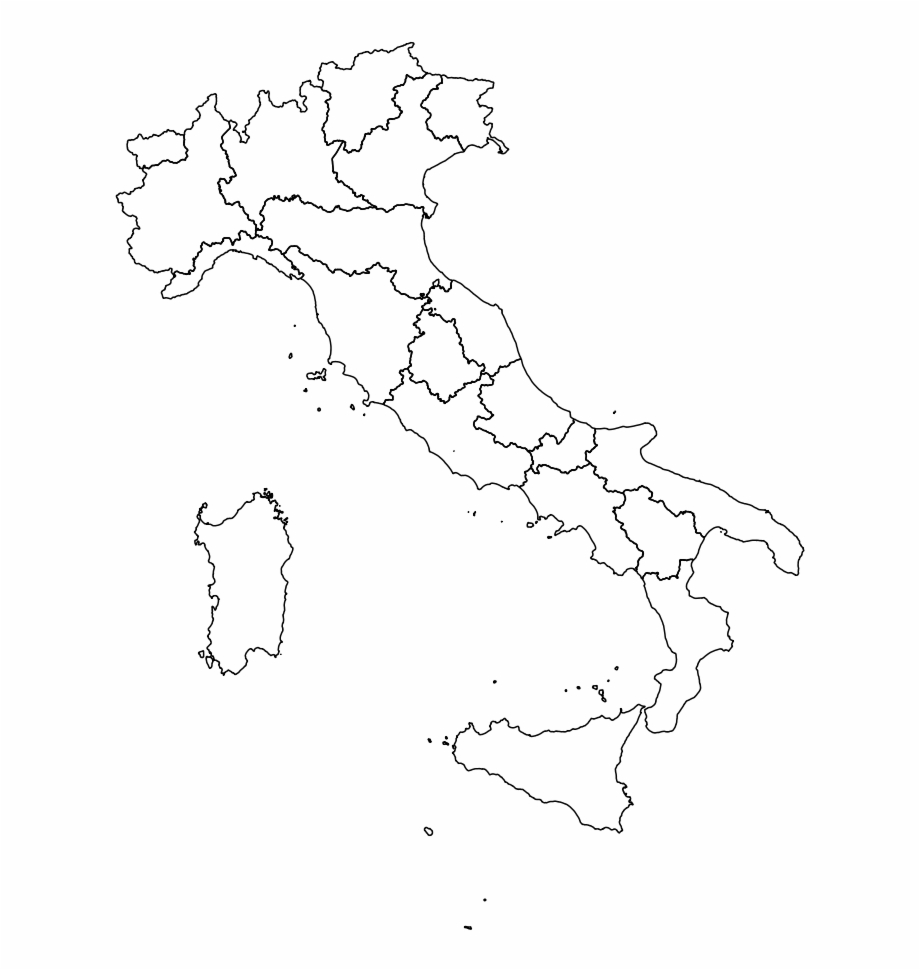
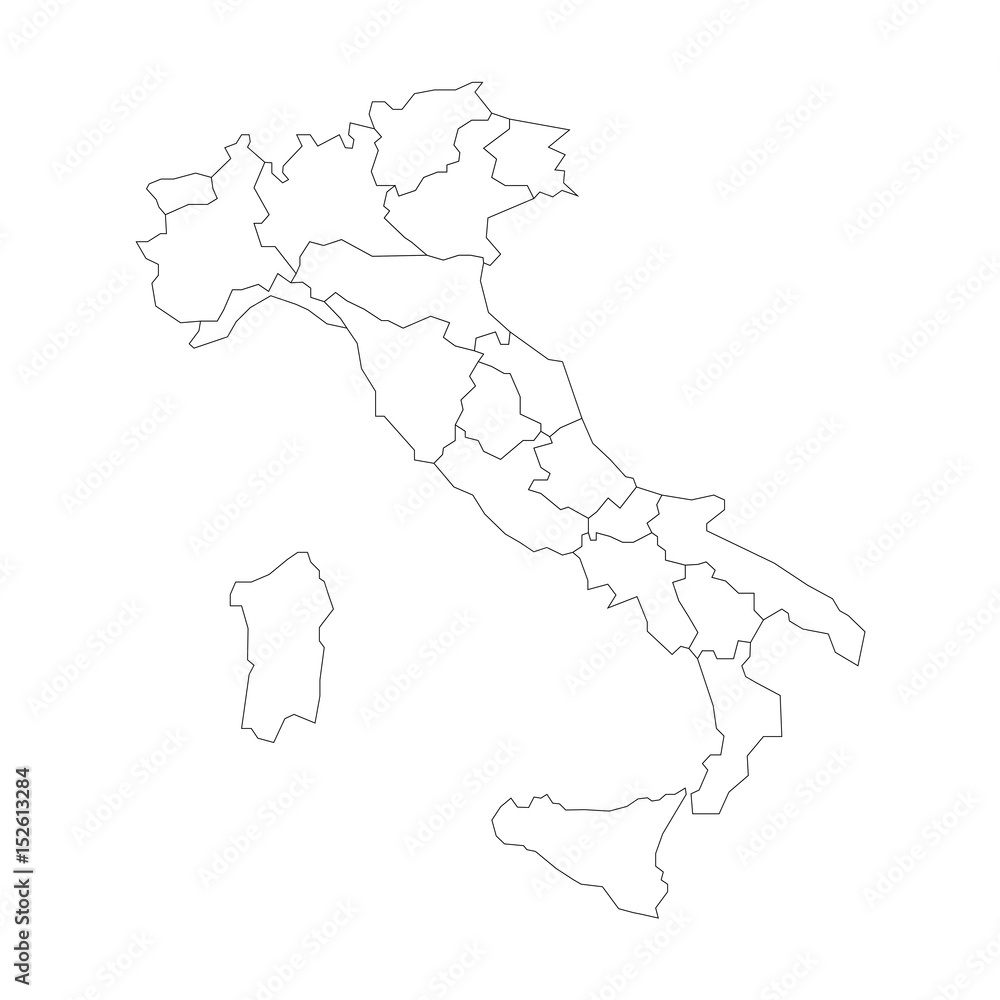

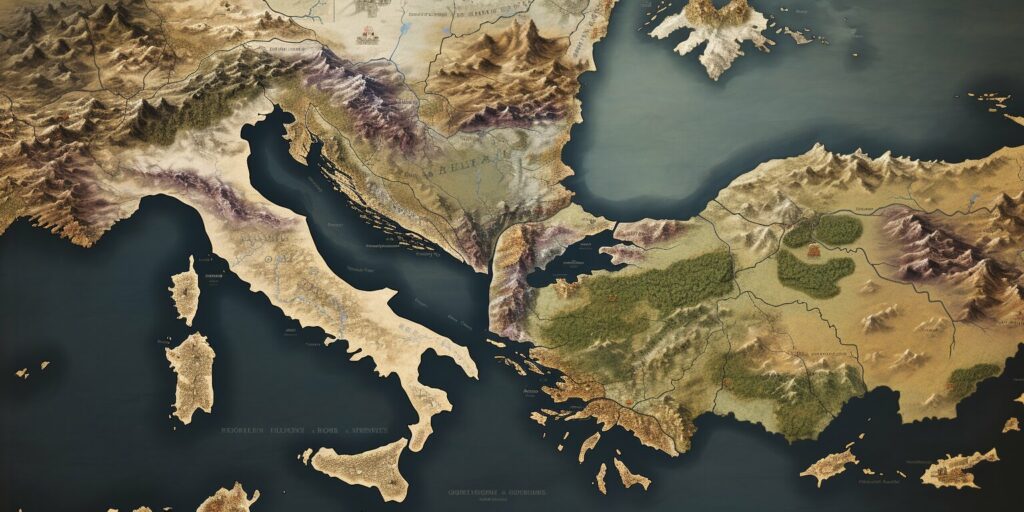
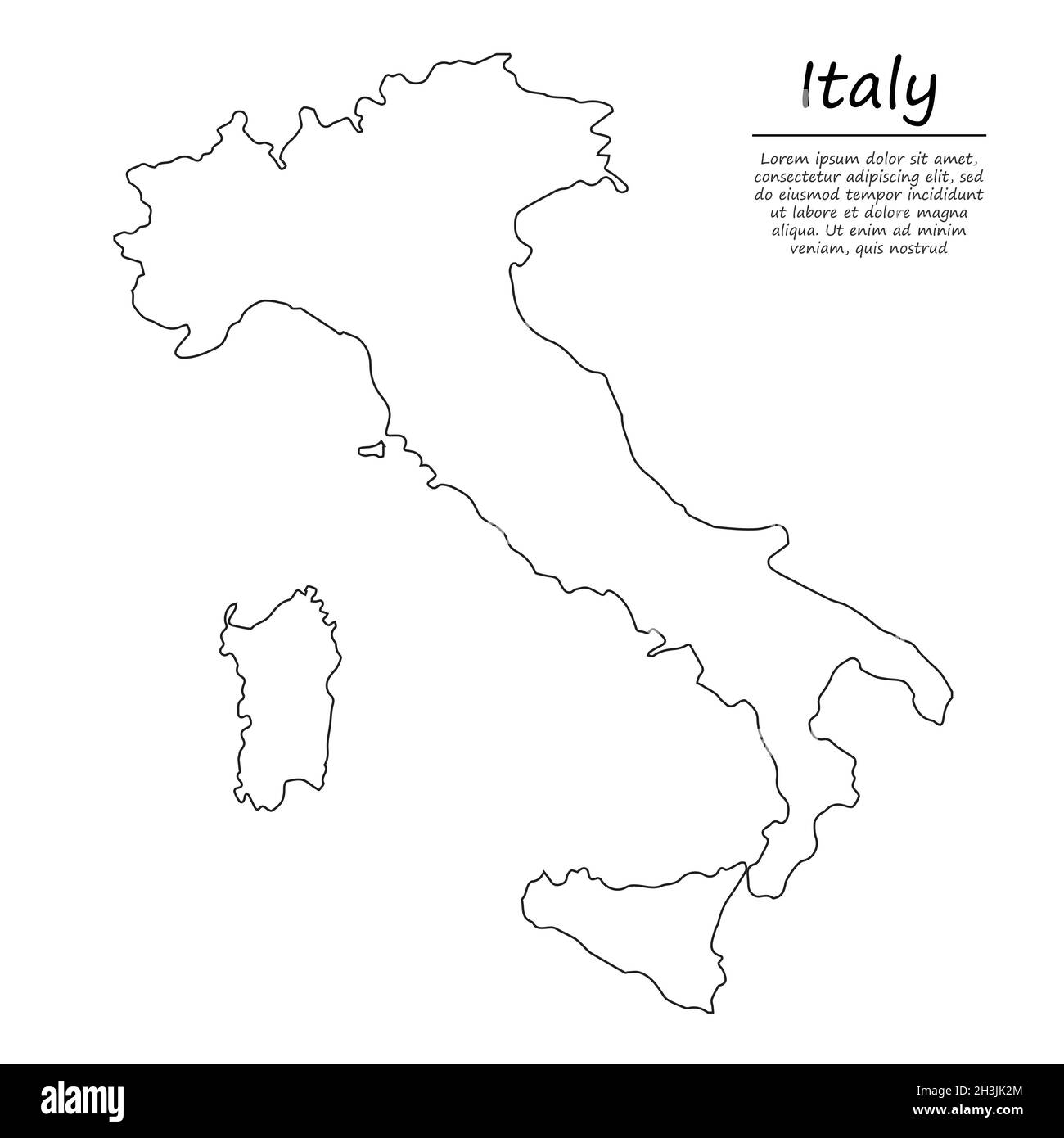

Closure
Thus, we hope this article has provided valuable insights into Unveiling the Italian Landscape: A Comprehensive Guide to Outline Maps. We appreciate your attention to our article. See you in our next article!